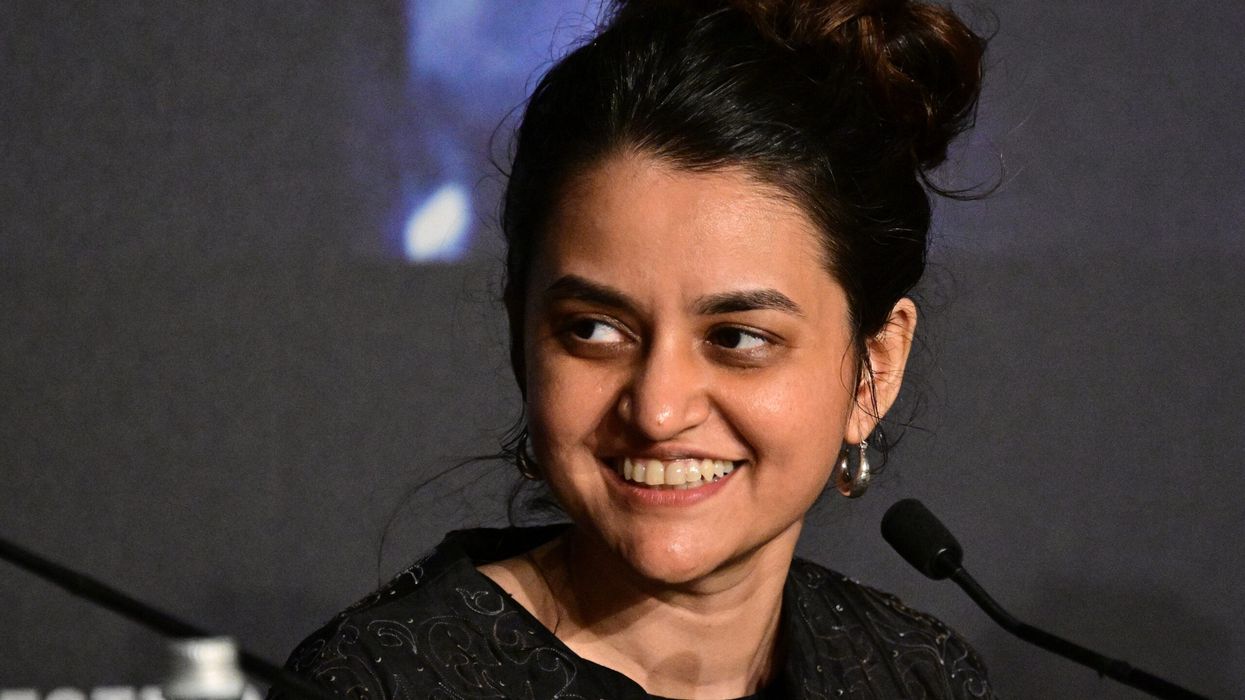The beauty of cinema is that all kinds of films can and should co-exist, says Cannes Grand Prix winner Payal Kapadia, who credits her exposure to films from across the world as a major part of her learning years at Pune's FTII.
Kapadia etched her name in history by becoming the first director from India to clinch the coveted trophy for her film All We Imagine As Light, the European film gala's second most prestigious honour after the top prize Palme d'Or (won by Sean Baker's Anora).
Kapadia's meditative film in Malayalam and Hindi about two Mumbai nurses was also the first film in 30 years to enter the main competition section of the prestigious film festival since Shaji N Karun's 1994 Malayalam movie Swaham.
"I studied at FTII (The Film and Television Institute of India) and it was a really important part of my learning of cinema. We watched films from all over the world there, we studied cinema from everywhere. Maybe that's crept into how I like to make films," she said at a press conference in Cannes after the win at the May 14-25 event.
"Maybe that then becomes a language that the western audience can be more open to because I think we have our own vocabulary in cinema and it's very self-contained in India. We understand the gestures in our communities," Kapadia said while reflecting on the film's universal appeal given how it charmed international critics and the Cannes jury, headed by Barbie director Greta Gerwig.
Addressing a press conference in Cannes on Saturday night with the cast, the filmmaker spoke about the extensive collaborative process with the actors and technicians, the importance of sound in the movie, predominantly set in the cacophony of the fast-paced Mumbai city, and the flourishing cinema culture in different states, particularly Kerala.
Kapadia, also known for the acclaimed documentary A Night of Knowing Nothing, said there is not always a need to send a film to an international film festival as India has many of its own.
"We have our own (film) festivals. There are a lot of people who go out to watch films. This is just one film amongst thousands of films and it's good that we can have all kinds of films -- festival films, some 'not festival films'. Everything should exist together. That's what's wonderful about cinema," she added.
She gave a shout-out to fellow FTII alumni, including her batchmate Maisam Ali, whose film In Retreat was showcased in the Cannes sidebar ACID. Chidanand S Naik, also an FTII student, won the first prize in the La Cinef category for short films for his diploma film Sunflowers Were The First to Know.
"It was nice to see that our school has led us to making different kinds of films. I'm really grateful for it," she said.
Kapadia also praised the thriving Malayalam film industry, saying audiences in Kerala are more open to watching different kinds of films. All We Imagine As Light also stars Kani Kusruti, Divya Prabha, Chhaya Kadam, and Hridu Haroon.
"Everything is changing. Even what Bollywood is, it is changing all the time. There is an immense amount of range in the cinema from Kerala. Even arthouse films get distribution there, which doesn't happen in the rest of the country," Kapadia said.
She said it was a joy to work with such wonderful actors.
"We really had a strong friendship and connection. That is what the film is about, so when you have it in real life, it shows in the film. I was really grateful to work with them. They gave me so much time... We formed a camaraderie between us and that is what finally shows on screen."
Read Also: Sean Bean to lead new BBC crime drama ‘This City Is Ours’
While it was a privilege to be selected in Cannes main competition, winning the award was "absolutely crazy", Kapadia said. She made the same point in her acceptance speech when she urged the organisers to not wait for another three decades to bring a film from India.
"It was really wonderful for us to get this recognition... The filmmakers are so amazing, (there are) the people I really look up to. There are interesting films being made in India and I'm only a product of that...
"We've been around for a long time. It's just that (for) some reason it took 30 years to be selected but there's amazing work going on in our country. I'm glad we see the kind of cinema we do in India."
All We Imagine As Light revolves around three women of different ages in Mumbai. Their life takes an interesting turn when they go on a trip to a beach town in Ratnagiri.




